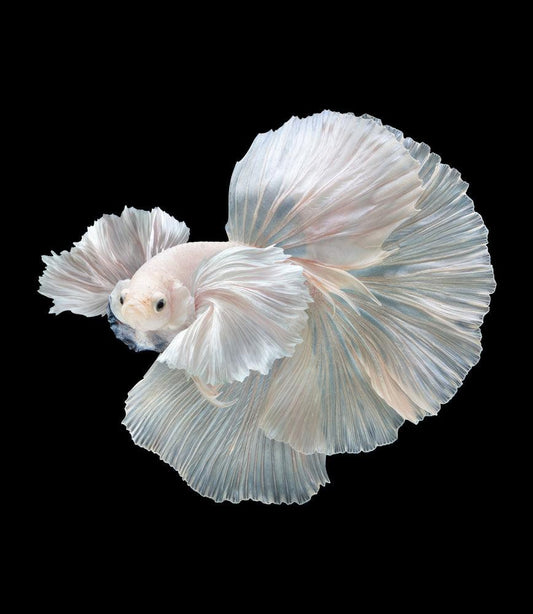Understanding Betta Fish Habits: What Every Proprietor Ought To Know
Understanding Betta Fish Habits: What Every Proprietor Ought To Know
Blog Article
Everything About Betta Fish: Comprehending Their Unique Needs, Behavior, and the most effective Practices for Optimal Treatment
Understanding the one-of-a-kind demands and behaviors of Betta fish is essential for any type of aquarist looking to provide optimal treatment. betta fish. As we check out these components additionally, the effects for both novice and knowledgeable fish keepers come to be significantly obvious, increasing inquiries regarding just how best to fit these remarkable fish in our homes.
Betta Fish Review
Although commonly appreciated for their dynamic shades and streaming fins, Betta fish, medically referred to as Betta splendens, are intricate animals that call for details like flourish. Stemming from Southeast Asia, these freshwater fish are known for their territorial nature and unique habits. Betta fish display sex-related dimorphism, with males displaying much more vivid shades and longer fins than ladies.
Their hostile propensities, particularly amongst males, necessitate cautious factor to consider when real estate them. Bettas are typically kept in single-specimen storage tanks to stop territorial disagreements. They can exist side-by-side quietly with specific compatible varieties in bigger community storage tanks, offered the atmosphere fulfills their needs.

To make sure optimal care, aquarists need to understand their distinct behavioral attributes, nutritional demands, and environment requirements. betta fish. With proper interest, Betta fish can exhibit their vibrant characters and flourish in a well-kept fish tank setup
All-natural Habitat and Setting
Betta fish flourish in a varied series of natural habitats, mostly found in the superficial waters of Southeast Asia, consisting of rice paddies, swamps, and slow-moving streams. These settings are identified by warm temperatures, usually between 75 ° F and 82 ° F(24 ° C and 28 ° C ), and a pH level varying from 6.5 to 7.5, which is excellent for their wellness and health.
In their natural environments, Betta fish are accustomed to dense plant life, offering both sanctuary and breeding premises. The existence of plants such as drifting water lilies and thick grasses not just uses security from predators however also adds to the oxygenation of the water, which is necessary for their respiratory demands. In addition, these atmospheres typically have areas of still water, allowing Betta fish to display their all-natural habits such as bubble nesting.
Comprehending the natural environment of Betta fish is critical for aquarium fanatics. Reproducing these problems-- with water temperature level, pH equilibrium, and the incorporation of real-time plants-- can dramatically improve the overall health and wellness and long life of these exciting fish, guaranteeing they flourish in a home fish tank setup.
Social Behavior and Interactions
Recognizing the social behavior and communications of Betta fish is essential for successful aquarium management. Betta fish, or Siamese fighting fish, are recognized for their special behavioral attributes, identified mainly by territoriality and aggressiveness. Men, particularly, show highly hostile actions towards one an additional, causing the well-known online reputation of Betta fish as competitors. In a restricted space, two males can involve in violent conflicts, usually causing injury or death.
On the other hand, female Bettas show much less hostile actions and can exist side-by-side in groups, recognized as sororities, if introduced correctly. It is crucial to monitor their interactions very closely, as power structure and supremacy can lead to problems. Comprehending the dynamics within a Betta neighborhood is essential; establishing concealing places and ensuring enough room can reduce aggression.
Furthermore, Betta fish might also show inquisitiveness and social behaviors towards other varieties. While they can exist side-by-side with specific non-aggressive container companions, it is necessary to pick compatible species to avoid anxiety and aggressiveness. Overall, acknowledging these social interactions is key to fostering a harmonious aquarium environment for Betta fish.
Crucial Treatment Guidelines
Providing site here correct treatment for Betta fish is important to their health and wellness and health. Routine water modifications-- around 25% once a week-- help keep water top quality.
Betta fish require a suitable container why not try this out dimension; a minimum of 5 gallons is advised to give appropriate area for swimming and hiding. Consist of decors and plants to produce a stimulating environment, but avoid sharp things that can damage their fragile fins.

Last but not least, make certain the storage tank is furnished with a filter to maintain the water clean, but utilize a gentle filter to prevent solid currents that can emphasize the fish. By complying with these crucial treatment standards, proprietors can advertise a healthy and lively Betta fish.
Common Wellness Issues and Solutions
In the treatment of Betta fish, recognition of typical health and wellness issues is essential for maintaining their wellness. To treat fin rot, boost water conditions and take into consideration utilizing a broad-spectrum antibiotic.
An additional common disorder is ich, a parasitical infection defined by white places on the fish's body (betta fish). Treatment entails enhancing water temperature and adding fish tank salt to the storage tank, as this can help remove the parasite
Swim bladder condition is also frequently observed, leading to buoyancy issues. This problem may occur from overfeeding or irregular bowel movements. A fasting duration of 24-48 hours, adhered to by a diet plan of blanched peas, can give alleviation.
Lastly, bettas might experience velour disease, suggested by a gold dust-like appearance on their skin. Therapy normally calls for medication especially created for external parasites, alongside enhanced container health.
Normal surveillance of water parameters, maintaining a tidy environment, and supplying a well balanced diet regimen are important safety nets. By dealing with these health issues without delay, Betta fish can get more lead much healthier, more vivid lives.
Verdict
In recap, successful betta fish treatment needs an understanding of their distinct needs and habits. Regular monitoring of health and wellness and water top quality, along with a balanced diet regimen, adds to the durability and vibrancy of betta fish.
Report this page